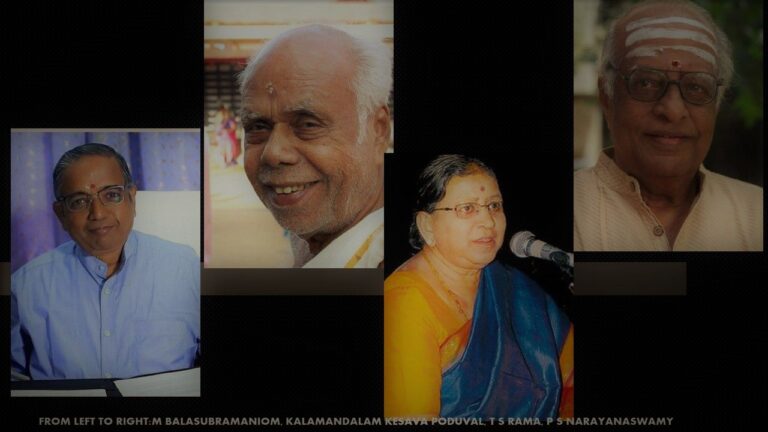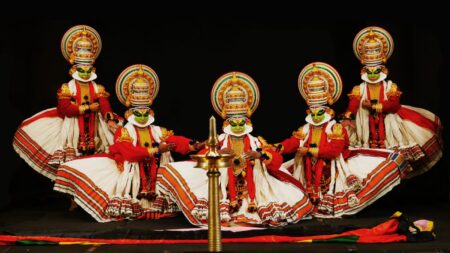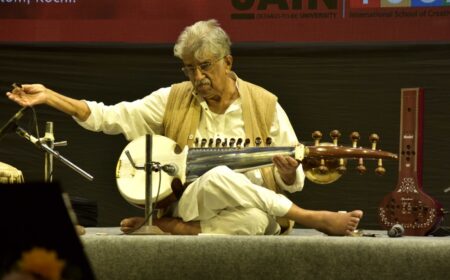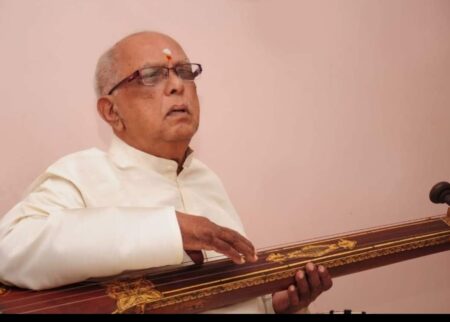Since August 15, India’s cultural scene has lost a number of great artistes such as Pandit Jasraj. Here’s a look at the top exits and what they mean for art and culture in the subcontinent
Navaratri this time, however muted owing to Covid-19, looked poised for a positive note with acclaimed classical musician Vinayak Torvi being honoured by the Karnataka government. Hours before the septuagenarian Hindustani vocalist was conferred with Sangeetha Vidwan at the inaugural ceremony of nine-day Dasara programmes in Mysore Palace, an equally renowned Carnatic exponent died in another heritage city.
PS Narayanaswamy, 86, breathed his last in Chennai on October 16, marking the exit of yet another frontline disciple of a school that has effectively functioned as the haloed mainstream of south Indian classical since the last century. Essentially trained by legendary Semmangudi Srinivasa Iyer (1908-2003), PSN Mama groomed a legion of disciples. And quite a few of them did go on to make it big today.
If Narayanaswamy was renowned in equal measure as a performer, scholar and teacher, so was T S Rama, another Carnatic vocalist. She died on October 20 in Bangalore, the city she grew up and gained reputation as an artiste (though not hailing from a musicians’ family). Rama performed at All India Radio for five decades, having been a pupil of Bangarpet Krishnamurthy and L S Narayanaswamy Bhagavatar. With two post-graduate degrees, she served in a couple of music colleges in the state.
Four days prior to Rama’s end, another female artiste bade farewell—this time from the world of classical dance. Kuchipudi star Shobha Naidu, 64, passed away on October 16 at a Hyderabad hospital. Naidu, who has performed in various Indian cities and abroad, was born in Visakhapatnam. She later became a disciple of maestro Vempati Chinna Satyam and helmed a Kuchipudi Art Academy where she choreographed 80 solo numbers and conceived 15 ballets in the art-form of Andhra Pradesh.
Sharing an umbilical relation with Kuchipudi is Bhagavatha Mela. This dance-drama, which was born in Caurvery belt’s Melattur village, lost S Natarajan, hours before Naidu died. The maestro, 77, is credited with reviving the traditional spirit of Bhagavatha Mela as a musical theatre that flourished in the 16th century around Thanjavur.
Bang in Thanjavur, mridangam exponent M Balasubramaniom died unexpectedly on September 6, much to the grief of the art world. Subramaniom, 63, was serving as the director of the South Zone Cultural Centre established by the Government of India. Balasubramaniom was a native of Thiruvananthapuram, where he learned under Mavelikkara Velukutty Nair. Balasubramaniom had served as the principal of a couple of vintage music colleges in his native state.
One of those institutions was RLV Music College, which lost another percussionist recently. Chenda master Kalamandalam Kesava Poduval served the academy’s Kathakali section for 22 years from 1964. He was months short of turning 90 when he died on October 10. Adept in both the solo chenda tayambaka concert and in Kathakali percussion, Poduval was a native of Kudal village near Pattambi (not far from Palakkad, where (Chembai Music College) Balasubramaniom had served as a teacher).
Covid-19 claimed both the lives, just as it did in with S P Balasubramaniam. A Chennaiite much of his life (like was PSN), SPB was a popular singer who shone in film numbers even as his Carnatic recordings for a few movies did win appreciation from purists as well. SPB, 74, died on September 25.
Unlike SPB, fellow Telugu I V L Sastry trod just the Carnatic path. Aged 93, he died (in Visakhaptnam), gaining name in not just vocal, but classical instruments such as the mridangam, flute, kanjira and the harmonium. As the founder of Sangeeta Janakulam that subsequently opened branches in other states, he groomed several students. The famous among them include his daughters Saraswati Vidyarthi and Sarada Subramaniam, besides flautist son Kali Prasad.
If Sastry was a doyen of 20th-century Carnatic music in Andhra, Kapila Vatsyayan was a cultural doyenne with a global view. Revered for her vision about the art-forms of India and abroad, her thoughts a reflected a transcontinental take on music, dance, fine arts, theatre and architecture. Vatsyayan, 91, died on September 16, a good 35 years after associating with the Indira Gandhi National Centre for the Arts in her city of Delhi.
A month before that, on August 17, Hindustani music was bereaved of one of its biggest icons. Pandit Jasraj, 89, whose role in taking the Mewati gharana of the classical system to unprecedented heights, died in New Jersey of the United States. Jasraj died at his home in New Jersey. The cause was cardiac arrest, according to Jasraj’s kin.
The likes of Jasraj are credited with transforming India’s culture in myriad ways. Hence, for obvious reasons, their absence will be missed, forever.




